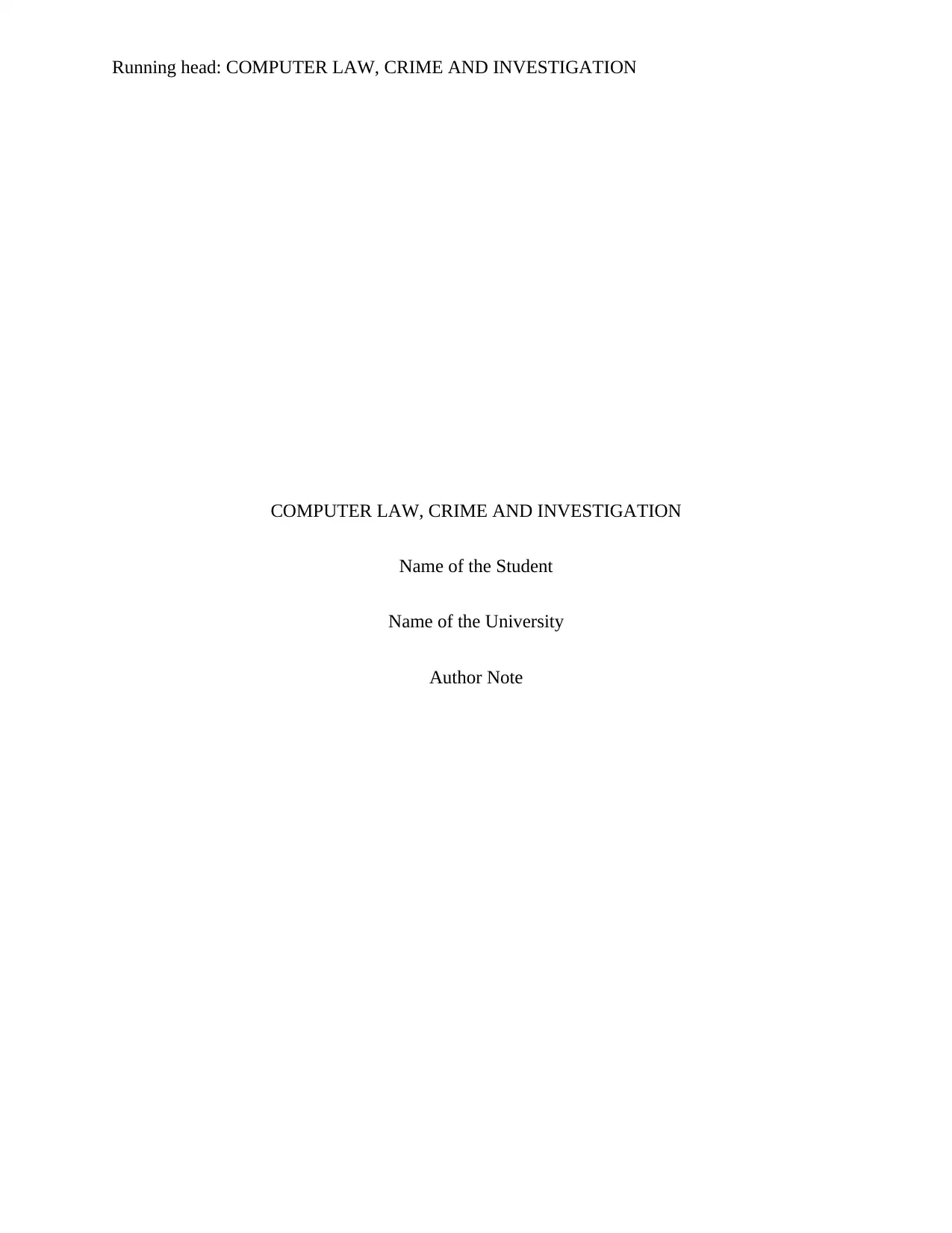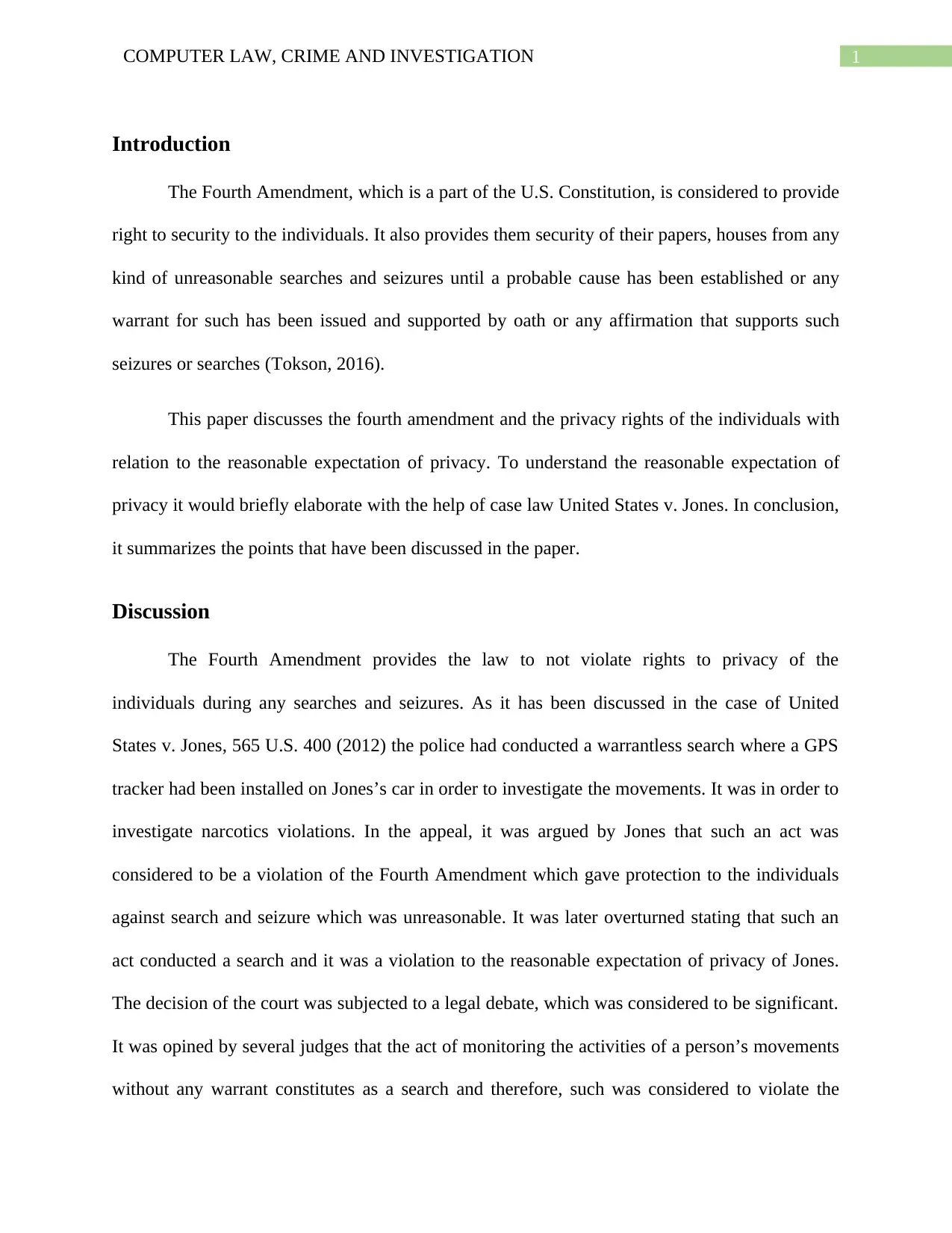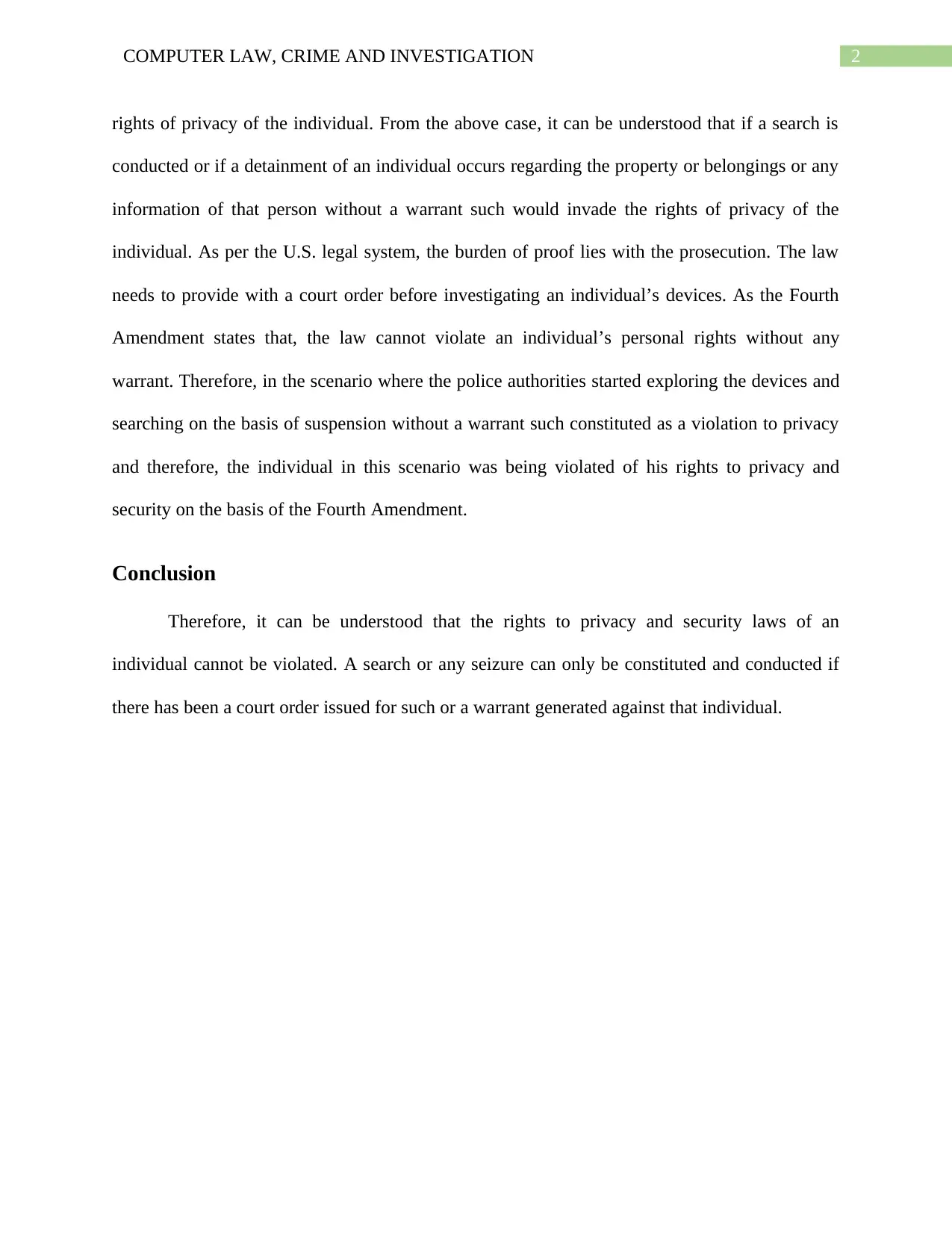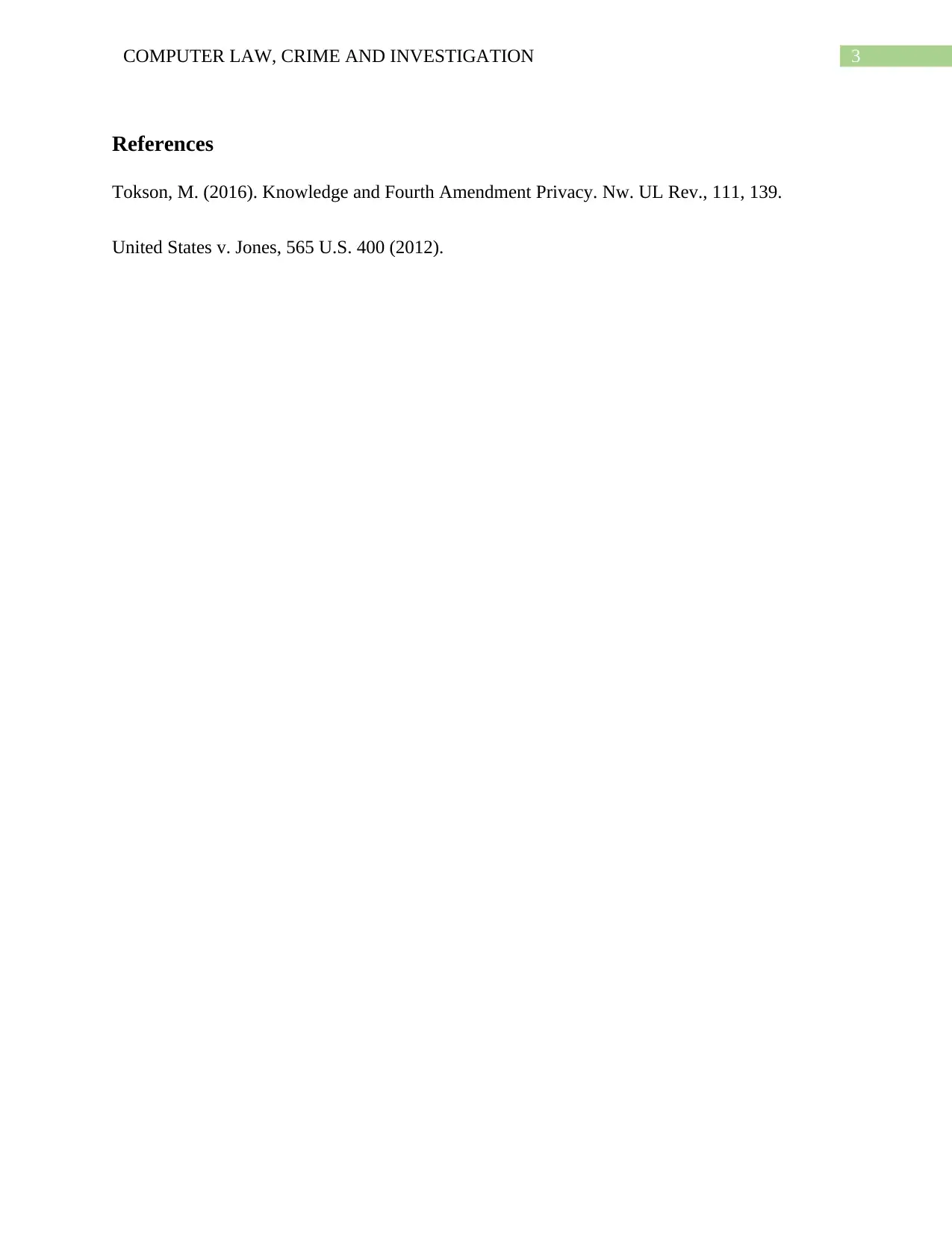Fourth Amendment and Privacy in Computer Law, Crime, and Investigation
VerifiedAdded on 2022/09/27
|4
|622
|19
Essay
AI Summary
This essay delves into the Fourth Amendment of the U.S. Constitution, emphasizing its role in protecting individual rights to security and privacy against unreasonable searches and seizures. It examines the concept of reasonable expectation of privacy, illustrating its application through the case of United States v. Jones, which involved warrantless GPS tracking. The paper discusses the implications of such actions, arguing that any search or seizure conducted without a warrant, especially involving digital devices, violates an individual's privacy rights. The essay underscores the importance of court orders and warrants in investigations, as per the Fourth Amendment, and concludes by summarizing the key points regarding the protection of privacy and security rights in the context of computer law and investigation.
1 out of 4











![[object Object]](/_next/static/media/star-bottom.7253800d.svg)